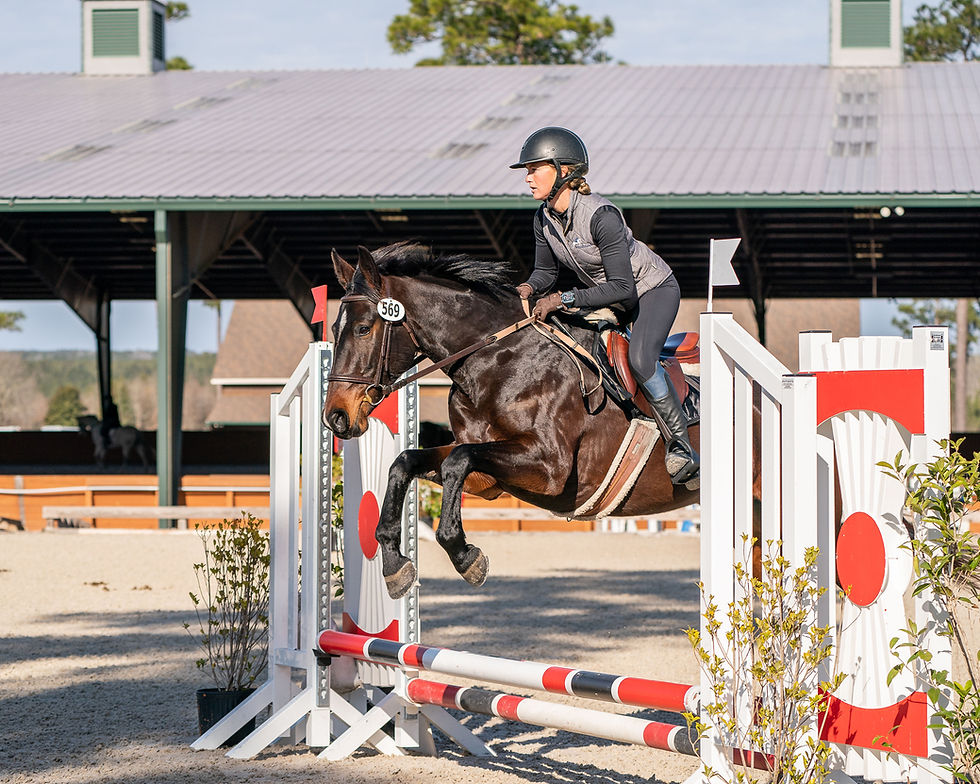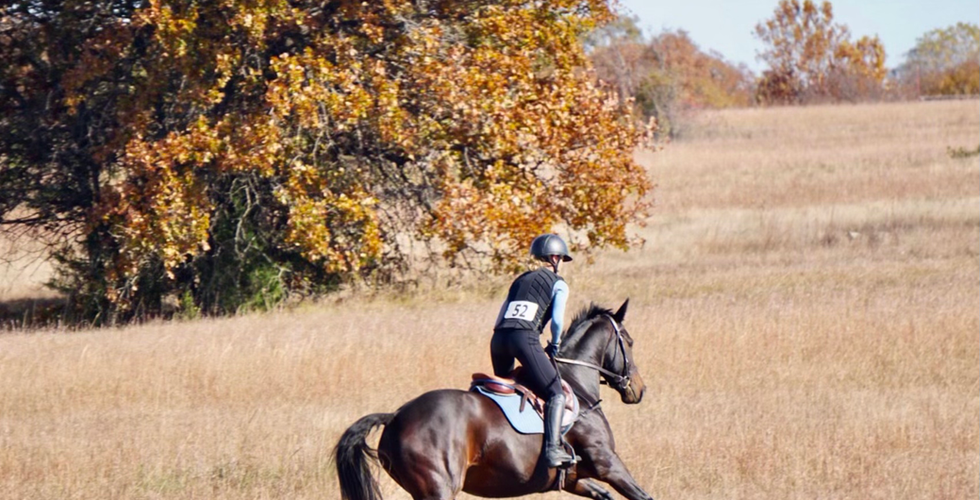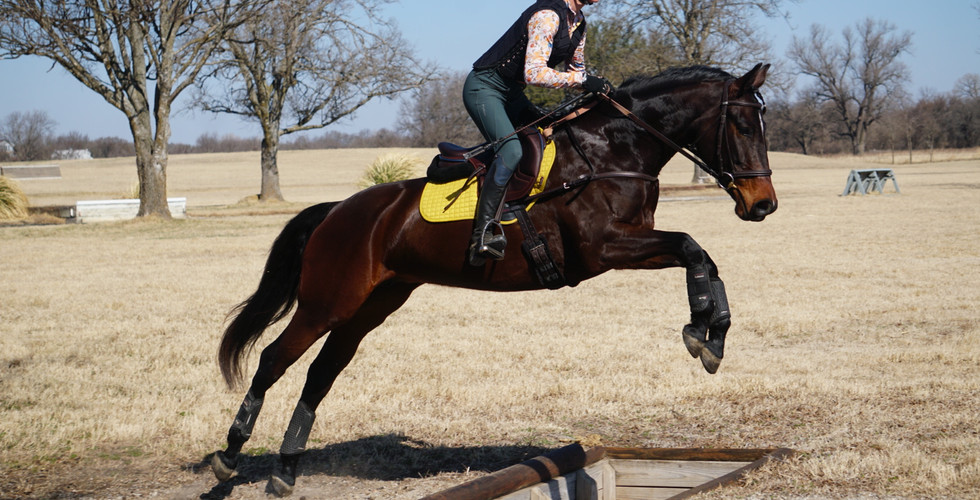A Cry for Help
- janeterryberry

- Sep 10, 2022
- 7 min read
Updated: May 19, 2023
Beata's Story: Strange Behavioral Issues, Ovarian Cancer, and the Veterinarians who Saved her Life
Beata's Story
In 2016, I searched for a special horse. I wanted to find the nicest young horse I could afford, start her under saddle, and bring her up the levels of eventing. In 2016, I also attended Rolex Kentucky 3-Day Event in which the top two finishers were smaller bay mares: Fischerrocana FST and Veronica.
A filly by the name of MW Riley Z was born in Kentucky in the summer of 2016. Her sire, Ricardo Z, stands in Ireland. Her dam, Bobstone, is a proven Thoroughbred broodmare. Her siblings acquired impressive resumes from international competitions across a variety of disciplines.

I learned about this filly and created a checking account named "Filly Fund." For one year, I socked away money. Fourteen months after she was born, we bought MW Riley Z and brought her home. I decided to name her Beata, (pronounced bay-ada) meaning, "She is blessed."

I handled Beata daily and enjoyed the process of bringing up my first young horse. She was a late bloomer - always looking a bit younger than what she actually was. When she was three-and-a-half, I rode her for the first time. During Beata's five year old year, she progressed from the grasshopper level of Eventing all the way up to Novice - and placed competitively the whole way up.


Something Brewing
Though Beata progressed quickly, she was not rushed. I tried to listen well and prepare her for success, but I noticed signs of discomfort on our journey. Beata proved to be extremely sensitive. She only liked certain brushes, certain saddles, certain bits, certain postures.
In dressage, she was not consistent. My trainer, Anthea Kin, took notice of 'rhythm mistakes;' we called them mistakes because she did not appear lame - instead, she just looked tense and showed tense and irregular movement at times.
In jumping, Beata occasionally bucked. I ordered a custom saddle for her and did my best to improve my balance and position as to not interfere with her most athletic jump. Still, the tightness, rhythm irregularities, and occasional, unpredictable bucking remained.
I took Beata to two different veterinarians in Oklahoma and asked them to give her a complete look-over. She was evaluated for neurological changes and hooked up to a lameness locator with no clear lameness to be found and no definitive answer to her sensitive behavior. Her behavioral issues were so subtle that I began to think I was losing my touch training young horses and that perhaps Beata and I just weren't getting along.
My hunch shifted to outright concern in the spring. When the other mares at the farm came into heat, Beata began to act like a stallion. She either teased or bullied other mares, causing ruckus and mayhem wherever she went. To my alarm, one night while riding, Beata threw a tremendous and impressive bucking fit. I clung on and pleaded with her through tears to STOP bucking so I could dismount. When she finally did stand still, I dismounted, feeling shaky, furious, and depleted. I gathered my nerve and rode her the next day to try to get to the bottom of her issue, but she behaved perfectly. Bewildered, we soldiered on.
One Incredible Vet
At the beginning of July, I loaded up a few horses and drove to the coast of North Carolina. Family Reunion, Fourth of July parties, helping with my mom's sailing camp, escaping the triple digit temps back in Oklahoma - all seemed like good excuses to take the horses to the coast of North Carolina for a week or two.
"A week or two" - what famous last words.

During the first week at my parent's farm in NC, Dr. Emily Weidrick from The Oaks Equine Vet visited the farm administer booster shots and float teeth. While visiting, Dr. Emily watched as Beata teased another mare over the fence. I shrugged, exasperated, and shared Beata's latest strange behaviors.
Dr. Emily's eyes got big and she pointed to Beata. "THAT is not normal. Let's get a blood panel on that girl; she could have a tumor in her ovary throwing her hormones out of whack." I hastily agreed and ten days later, we had results.

Immediately, we called for an ultrasound of Beata's ovaries, which would confirm or deny the existence of a tumor. Dr. Shanna from The Oaks was mid-sentence ultrasounding a sedated Beata when she exclaimed: "YOU are going to surgery."
"Are you serious?" I responded, in shock.
"Oh yes," Dr. Shanna responded. "She has a tumor the size of a basketball in her right ovary. My ultrasound can't even read it all, it's so big."
"This mare," she went on: "This mare is a saint. This thing has been pushing into her back, growing slowly, since she was two years old. Causing all these problems. She is a saint to have not hurt someone by now."
Only the First Hurdle
Tearfully I rubbed Beata's sleepy face then put her saddle and bridle away. I apologized for riding her and swore I wouldn't again until she was all better; I thanked her for taking care of me even through buckets of pain. Within the week, she was scheduled for surgery at NC State to remove her right ovary entirely. Normally a straightforward procedure, if all went according to plan, she would be back to riding in six weeks. There was not a girl in the world happier than me, taking my mare to NC State, relieved to have answers and ecstatic to meet the new horse I'd have on the other side of this procedure.
Three women greeted us at the Equine Hospital and introduced themselves. A surgeon, a resident, and a veterinary student - all teammates on Beata's case. We spoke about Beata's history, the blood and ultrasound results, and discussed the upcoming procedure. In a flash, I was driving home feeling confident that Beata was in the best possible hands.
While making the three-hour trek back to the coast, the resident - Dr. Guerra - called. She shared the results of NC State's own ultrasounds, reviewed the cost of the procedure, and also went down a long list of possible complications from the ovary removal. I verbally agreed, sent over deposit information, then felt a lump in my throat. Things could go wrong, I realized. REALLY wrong. And I said 'goodbye' to her, but I didn't say THAT kind of Goodbye! Fear seized me. A perfectly timed call from a close friend soothed my nerves and reminded me to breathe.
I received the call around noon on August 2nd that Beata was out of surgery and had passed with flying colors. Unfortunately, our relief was short-lived. In their notes, the vets wrote: "Beata recovered from her procedure initially." By 4 pm, Beata was reported to be very uncomfortable with the vets keeping a close eye on her, and by 9 pm, she was suffering severe colic.
I was preparing for bed when I got the dreaded phone call. Dr. Guerra walked us through Beata's discomfort, why surgery was necessary to save her, why humane euthanasia was the only other option. She explained how much surgery would cost, how much money was needed immediately for a deposit, and what Beata's chances were of surviving the surgery. We chose surgery. With a 50/50 shot, we put our money on Beata's recovery. We called our friends and family, we wept, and we prayed.

Beata's intestines had "telescoped" - the veterinarians removed 14 feet of her stomach and stitched the healthy ends back together. When Beata was back up and standing, she would receive one handful of chopped, fresh grass every two hours with slow increases day by day closely monitored by her team of veterinarians. No one was certain whether the incision would hold up to more food, or different types of food. For a week we watched, waited, and prayed.

I asked the vets: why did this happen? What caused the massive colic after the ovary removal? Sometimes, things in the stomach don't get moving the way they need to when a horse wakes up from sedation. Sometimes, after the removal of something so huge, the rest of a horse's parts shift and don't start working immediately the way they should. Though we don't know exactly why Beata suffered colic after the ovary removal or why it was so severe, one thing is certain:
If Dr. Emily Weidrick hadn't gone out of her way to address Beata, the tumor would have continued to grow unaddressed. Inevitably, Beata would have suffered colic down the road or perhaps something far worse when the tumor grew to an unbearable size.
Gratefully, the prayers of those who love me and love Beata carried her through to the other side of her two surgeries within 24 hours. The vets had given us a 50% chance of Beata surviving the colic surgery and ensuing complications, which were "guaranteed." Miraculously, Beata has not suffered a single complication since the surgery.

I'm grateful beyond measure to Dr. Emily and Dr. Shanna from The Oaks Equine, who answered my questions of what was wrong with Beata.
I want to extend an enormous Thank You to Dr. Guerra and Beata's entire team at NC State who worked tirelessly to help her heal. They let me sit in her stall for hours, call every day for updates, and answered my questions with graciousness and patience.
I'm grateful for Shuler, who didn't pause for a second before agreeing with me to get Beata to surgery.
I'm thankful to my friends and family who prayed and supported Beata and me through the process. You housed me, prayed for me, and talked me off the edge when I wrestled with despair. You know who you are and I'm forever indebted to you for your kindness and love toward me.
Thanks to the help and guidance of amazing veterinarians and the prayers of my friends and family, I look forward to the day when I can fly with Beata again.
God bless y'all.
<3
























Comments